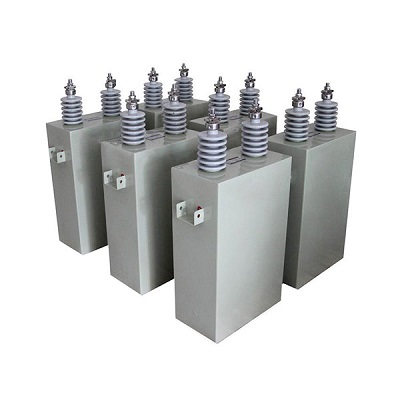Improve power factor: In the power system, many loads are inductive and consume reactive power. Power capacitors can generate capacitive reactive power, which offsets the reactive power of the inductive load, thereby improving the power factor of the entire power system. The improvement of power factor can reduce the reactive current of the line and transformer, reduce line loss and transformer loss, and improve the economic benefits of the power grid.

Reduce line loss: Power capacitors can reduce the reactive current in the line by improving the power factor, thereby reducing the resistance loss of the line and the heating of the conductor. This can not only improve the power supply efficiency of the power grid, but also extend the service life of the line.
Improve voltage stability: In the power system, voltage stability is crucial to the normal operation of equipment and the safety of the power grid. Power capacitors can adjust the voltage of the power grid by absorbing or releasing reactive power, thereby improving voltage stability.
Improve power quality: Power capacitors can also be used to improve power quality, such as suppressing harmonics, reducing voltage fluctuations and flicker, etc. By properly configuring power capacitors, the harmonic content in the power grid can be reduced, and the impact of harmonics on equipment can be reduced; at the same time, power capacitors can also absorb overvoltage and undervoltage in the power grid, reduce voltage fluctuations and flicker, and improve the power quality of the power grid.
Other applications: In addition to the above uses, power capacitors can also be used for motor starting and operation, welding machine compensation, inverter filtering, etc. These applications can effectively improve the operating efficiency and performance of equipment and reduce the operating and maintenance costs of equipment.